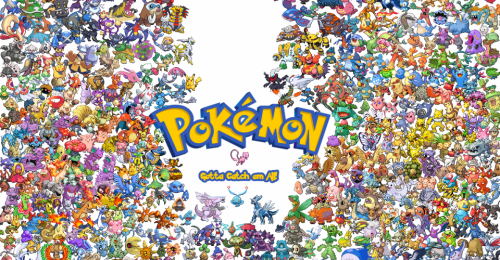

Pokémon GO hit smartphones just over a week ago and it’s already an international phenomenon. In the American market, the game reached No. 1 on the downloads chart in just 13 hours, and according to some vendors, is pulling in $2 million a day. It is already more popular than Tinder and Instagram, and it’s nearly out in front of Twitter. By almost all projections, it’s going to be the most successful app in app history.
The media noticed, of course. Apparently, the game is both brilliant and the most dangerous game in the world. There was even an interesting piece on how it could be a catalyst for threats to black lives in some concrete ways.
The non-media response has been overwhelming, too. Scroll through your Facebook and Twitter feeds and you’ll find three basic responses to the game. Group 1 thinks that the game is amazing and can’t believe how much they’ve walked in the past week. Group 2 doesn’t really know what’s going on.
And then there’s group 3. The naysayers. The contrarians. Not the folks with legitimate concerns about safety or with technical critiques of the game’s mechanics. But the kind of people who discovered that Santa wasn’t real when they were five and just had to tell everyone else in their kindergarten class.
[vimeo 127305840 w=640 h=360]
Life at Play – Jamin Warren from Mockingbird on Vimeo.
Some of them think that the game signals the end of meaningful, face-to-face relationships (which they’ve said about everything since our gracious and loving God invented computers). Some just think the game is dumb, and they’re upset that people are enjoying it. Others think their own interests are so far superior that they just can’t be bothered.
The Poképharisees embody an insidious law. Whether it’s from Christians who don’t think we’re spending enough time evangelizing or reading our bibles or praying, or from neighbors who think we aren’t sophisticated enough in our tastes and hobbies, it hits us. It all adds up to one, simple allegation: “Thou art not using thy time as wisely as I am using mine.”
Obviously, everyone has vices. And true, we shouldn’t bury ourselves in video games (or books, or opera, or parenthood, or – dare we even think it – our bibles) to the exclusion of our neighbors. But that doesn’t mean we can’t play. Real, unadulterated, foolish play. The kind where we have nothing else on our mind.

The law that says, “We must use our time this way,” is the same one that says we must be taken seriously. The truth is that we aren’t worth taking seriously. We’re sinful, neurotic creatures who can’t seem to make it through a day without simultaneously beating and building ourselves up.
But the gospel says that God loves that which cannot be taken seriously. He loves and welcomes the jester. The clown. The fool. And that frees us up to throw away our inhibitions and celebrate. Because of God’s reckless grace, we’re free to party.
Play is a great gift from God. It’s one of the things that God has given us to enjoy in the penultimate world. It’s a brief respite from concern, confusion, and anxiety. Momentary relief from the weight of the law. You can throw caution right out and dive head-first into foolishness.
So fight for your life: play. Play complicated games that require strategy and skill. Play easy games that make you feel like you’ve accomplished something. Play games that take you out of your comfort zone. Invite others to play with you. Laugh with friends. Have some drinks and dance around. Goof off when you should be paying attention.
God is with you.
Go forth, and catch ‘em all.

COMMENTS
11 responses to “Pokémon, Pharisees, and the Importance of Play”
Leave a Reply













Just wondered this week if we are going to be a lot like children in the new heavens and new earth.
Without sin, of course.
But grown children filled with wide eyed wonder and awe at the new creation all around us and the God who saved us by his grace alone through faith alone in Christ alone.
An eternity of play that never gets old.
Well said, that “because of God’s reckless grace, we’re free to party.”
Great thought, Ellery. I think you’re onto something there. After all, Jesus says that the kingdom belongs to children, and there are plenty of places where we – as members of the body – are metaphorically referred to as children.
And children are expert party animals.
Great stuff Eric! But pardon me if I continue to play with reckless abandon, and yet never “tap THAT app”…..#babyboomerdisconnect
By all means, Howie. Just play something!
Yes, thank you Eric! Love the idea that spending hours chasing imaginary creatures is ok in Gods eyes. Im just grateful for the way PokemonGo has reminded us of what a great game pokemon has always been. I hope it never goes out of style again. I hear US studios are scrambling for movie rights…One can only hope.
I’m with you, CJ. Some are saying the game is a distraction and that Christians are wasting their time. I’ve even heard some say that it’s demonic. (Don’t even want to know what kinds of sermons people’ll hear about it on Sunday). But ultimately, we can rest in “It is finished.” And that’s eschatological language for, “The game has begun!” The work is complete. Time to play.
Awesome!! I wonder about that demonic part too. I’ve heard the same thing. But I bet the devil gets really mad when we do things that under the law he could actually use against us but under grace he can’t. Like Martin Luther said (paraphrasing) we’re too cautious but when the devil tempts/harasses about drinking I’ll sin and sin right freely. Thank God He’s actually a fun God.
Poképharisees–love it. Because here’s another thing about the game: so many American Christians huddle in their safe bubbles. We don’t interact with wider culture, sometimes because we don’t know how. So let us think of Pokemon Go as an icebreaker.
Eric, a little bit of (friendly) pushback if I may: (Upfront confession: Since I was a wee lad, I have been a judger of Pokemon players since, to my mind, they had not yet arrived at the better games.) Now a few comments/concerns: 1) I wonder if your distinction between law/grace takes full account of sociological issues in our day here. For example, don’t Americans tend to undervalue vocation, treat work as a means to an end (and thus overwork), and then feel the need to de-stress from work with “play”? Is there a reason we feel the need to use “play” to help our anxiety? In this sense, play might not be so much a gift from God but rather another aspect of the law at work… 2) I’m afraid that in this schema, doesn’t God just become a therapist who gives us over to unhindered freedom of whatever our desires are (if one takes the piece to its logical end)? 3) And I guess finally, while I could elaborate on more, I’m afraid this doesn’t take full account of Luther’s theology of distinguishing between Law and Gospel, inner man and outer man, etc. The Freedom of a Christian is fresh on my mind, so I’ll point to that. In that work, he says that a Christian is a “free lord of all, subject to none”, and if that were the only thing, I think it would comport well with your piece—that whatever our current individual desires are, we can do them. But in fact, he says that the Christian is simultaneously “a servant of all, subject to all.” That is because he teases out the Christian life to be one where the Christian is so caught up in the life of the Triune God that the person has now become human and can thus give oneself for the sake of the other, the neighbor, not one who has been given limitless “freedom” of one’s self. In sum, in the end, I’m afraid that this piece isn’t quite that radical and isn’t actually very counter-cultural at all. In elevating God’s Gospel to give way to whatever our individual desires of play, it ends up saying the same thing as much of the wider culture in which we find ourselves in.
Hi, Brandon.
Thanks for raising some points of concern and questions. Always glad for some feedback. Just a couple of things in response (I’ll number them, but just so it’s easier):
1. You’re right that my distinction between law/grace doesn’t take “full account of sociological issues in our day here.” This is certainly not a full treatment of all questions related to play, duty, law or gospel. It’s just a brief reflection on and reaction to the Pokemon phenomenon. So I leave a lot of things to the reader hoping that they will be charitable in their assessments. I’m not saying you haven’t been charitable – you raise some good points! Just saying that I didn’t intend to address everything that probably should and would be addressed in a more complete exploration of the subject. That said, I don’t think I’m really setting up a dichotomy between play and vocation. I’m talking about play as respite, and even as recklessness. The kind of play that is spontaneous and not overthought. The kind of play Jesus was scolded by the apostles for.
2. I didn’t mean to give the impression that – because of God’s grace – we can therefore spend our entire lives playing. My point was only that we are *free* to play, not that we should play all the time or ignore our callings. And that gets to your question. There’s work to do – not to earn favor with God, but to serve our neighbor. And we can’t serve our neighbor if all we ever do is play. And I certainly don’t mean to suggest that we can do whatever we like whenever we’d like to do it. I’m not going full antinomian, here! So if I wrote a counterpart article on vocation, I’d probably say that because of God’s reckless grace, we’re free to work. Freedom is the crux in both cases. I think I actually addressed this when I wrote that we shouldn’t do anything to the exclusion of our neighbors. And when I acknowledged vice.
So I think you’re reading this, perhaps, through a different lens (as you say, with some of Luther’s work on your mind). I wasn’t trying to be radical in the first place. It’s a simple piece with a simple point: Naysayers, calm down and have some fun.
Hope that helps to clarify a bit. Again, thanks for reading.
Eric, appreciate the reply. Let me clarify that I do think your piece hit on a particular issue… that people are so caught up in being serious and workaholics that they scold and judge people for play video games too much. Let me also clarify this: I wasn’t worried that you were swinging toward antinomianism… in fact, I was more worried that it swung toward law-centered living. (I don’t really think there’s such a thing as antinomianism in practice; I’ve read that Luther said that antinomianism is like actors acting out a play in an empty theatre—that is, it doesn’t exist.) My concern was that it encouraged the unhindered freedom of the individual self. Apart from a fuller definition of the human participating in the life of the Triune God, freedom and play gets turned into the individual’s limitless, consumerist desire in our culture. The Gospel addresses us as humans and so frees us to be the social and vocational beings we were created to be.